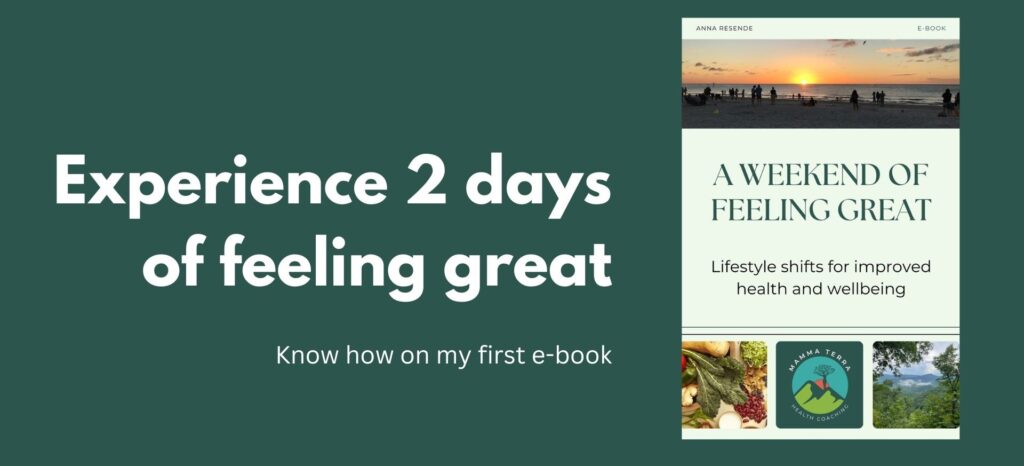Resolutions
I’m reading this book called Limitless, by Jim Kwik, in which there is a quiz to find out how your brain works. I took the quiz and mine is the Owl kind – The Logical Thinker. For my brain type, a structured daily routine helps me maintain focus and create an environment conducive to logical thinking. So, setting aside specific times for work, breaks, and personal time is key for me. I love to have a routine and a plan! That’s why I usually don’t have trouble with my New Year’s resolutions. But, if you struggle with yours then, this article is for you! I’ve compiled information from different experts on how to be successful.
It’s a New Year
It’s always good to start fresh. Although New Year’s resolutions are common, they are hard to stick with. The data shows over 80% of people abandon their resolutions within the first few months of the year—and only 10% stick with them until December 31st. Why do so many of us find it hard? Usually, it’s due to a lack of a good and realistic plan in place. As the French literary giant Antoine de Saint-Exupéry famously wrote: “Goals without plans are just wishes.”
Whatever it Takes
Real change requires purpose, strategy, consistency, and for most of us, a step-by-step plan. To help you achieve your goals this new year, I’ve compiled what different experts say about the topic to give you the tools you need to make a pragmatic plan for long-lasting resolutions. I hope it will help you have a successful year!
“A dream becomes a goal when action is taken toward its achievement.” – Bo Bennett
It is Personal
Different people need different plans. What works for you might not be what works for anyone else. Understanding this is the single biggest step you can take in the direction of success, says Cassie Kozyrkov – CEO at Data Scientific, Google’s first Chief Decision Scientist, Decision Advisor, Keynote Speaker, and LinkedIn Top Voice. That’s precisely why you shouldn’t copy anybody’s wellness plan, even knowing they are smart and look fabulous. You need a plan that fits you.
A Decision Scientist’s Advice
“Even if you read the best scientific studies for inspiration, remember that those results are true on average… but no one is the average human. For public health officials designing policies that affect a large group of people, those studies are gold. But if you’re designing policies for your own life, remember that the most relevant data for your endeavors is stored right behind your eyeballs. To maximize your chances of success, be your own test subject and study yourself.” Cassie says in her article to Medium.
Pick the Right Goals
It’s too easy to deprioritize a vague goal in your daily routine. Sure, you want to “be healthy” or “look your best” or “feel better” but those statements mean different things to different people. Be precise about what you want to achieve, answering the questions: What, Why, and How. The more specific your goal, the easier it is to create a focused and effective plan of action. The why is really important here so, take time to look inside of you for a strong motive to each one of your goals. Knowing your why will keep you on track.
Think SMART
The methodology of setting SMART goals never gets old. Just go easy on yourself and pick only 3 or 4 goals for the year. It’s always better to feel accomplished than a failure.
(S) – Once you find what you want to accomplish, write it the smart way – Specific, Measurable, Achievable, Relevant, and Time-bound.
(M) – Establish concrete criteria for measuring progress. Ask yourself questions like: How much? How many? How will I know when my goal is accomplished? Measurable goals provide a clear way to track your success.
(A) – Ensure that your goal is realistic and attainable. While it’s great to aim high, set objectives that are challenging yet possible. Consider the resources, skills, and time available to you.
(R) – Align your goals with your core values. Ask yourself if the goal is worthwhile and if it contributes to your long-term plans. A relevant goal matters and holds personal or professional significance.
(T) – Define a timeframe for achieving your goal. Without a deadline, there’s no sense of urgency. Set specific dates or timeframes to create a sense of accountability and to keep yourself focused on the task at hand.
A Personal Example
This year one of my goals is to write a book. A SMART example of how to write this goal is: “I will write 1000 words a day, 4 times a week, from January 15 to May 31, 2024. I’ll track my progress by checking the word count in my Word document. The first milestone is to have the whole draft ready by June. The second half of 2024 will be dedicated to revisions, editing, and final research so that the book will be ready for publication by early December.”
I know writing 1000 words a day is challenging but it is a realistic goal for me. I have been writing an average of 1300 words in my blog posts and it usually takes me 4-5 hours. As this is an old dream come true, writing this book is a relevant goal. Besides, I believe it will help a lot of people.
Support Systems
It’s not easy to change, that’s why we all need support systems or people who can hold us accountable. Kurtis Pykes in his article to Medium says “Instead of getting jealous of someone who has accomplished similar goals, ask for advice. Most people would rather come up with elaborate rationalizations for why they suck instead of humbling themselves and asking for help. (…)
You can figure it out by yourself, but why would you when someone else has already? You could save years of your life by finding someone who’s achieved what you want and asking them for the blueprint. (…) If you want to advance faster than you can ever imagine, make your life a quest of seeking out people better than you to learn from. Don’t let your lack of self-esteem or confidence block you from growing.”
Visualization
According to brain expert Jim Kwik, our brains are wired to think in images, not just words. This is why when you think of a place or an object, you picture it in your mind’s eye. This ability is a potent tool for achieving your goals. Many studies in neuroscience have shown that visualizing an action can stimulate the same brain regions as actually performing it. This means that when we vividly imagine our goals, we mentally rehearse our success, strengthening our brain’s capacity to turn these visions into reality. It’s not just about seeing a goal; it’s about preparing your brain to make it happen.
Fruition
Kwik guarantees that spending 10 minutes each day visualizing the goals you want to achieve goes a long way. Imagine your career advancements, health goals, personal relationships, and even the adventures you wish to embark on in vivid detail. Write down all that you visualize. Include auditory elements – what are the sounds associated with your success? Connect emotionally with your goals – how does achieving this goal make you feel?
Last but not least, share your goals. Telling other people, and most importantly, letting the universe know your plans and intentions is a magical thing. If you have true, aligned intentions, trust the universe!
Daily Practices
The most famous American psychiatrist, Daniel Amen, MD emphasizes how our everyday choices directly impact our brain’s performance. Prioritizing hydration, a real foods diet, and sleep, will keep our brains in peak condition – ready for another year of growth and achievement. Start each day with a positive statement like “Today is going to be a great day,” It has been scientifically proven that optimism increases not only brain health but also productivity and success. And don’t forget to sleep – otherwise you won’t dream.
There you have it my friends: set your SMART goals, see, feel, hear, and believe in them! If you need help with a good plan, count on me.
For a year of dreams becoming reality!
After all: Good is what makes you feel well!
Anna.
To know the importance of keeping your body hydrated read Hydration – key for better health.

Anna Resende
Integrative Nutrition Health Coach
Certified by IIN - Institute for Integrative Nutrition
Every week I send out my newsletter called Mamma’s Tips where I share health and wellness topics, good books, recipes, and more.
Click below to subscribe!
I’m excited to share that I just published my first e-book
A Weekend of Feeling Great!

In this book, you’ll find all the steps you can take to feel great. Besides all the foundational principles of multidimensional health, it has a sample of a productive daily routine and a two-day menu with 10 healthy recipes for you to try.





3 Responses